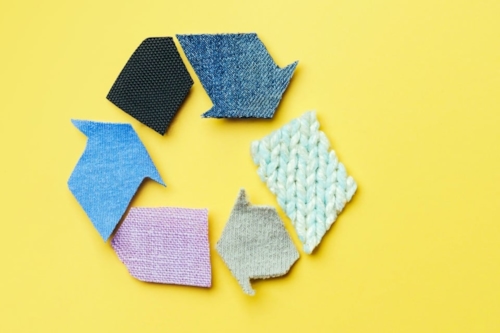
End of Waste
Receive a quote tailored to your needs
Content certification scheme
Two Commission Regulations of the EU are relevant to establish end-of-waste status for metal scrap under Directive 2008/98/EC:
- Commission Regulation - 333/2011 - EN - EUR-Lex (europa.eu) regarding iron, steel and aluminium scrap:
- Commission Regulation - 715/2013 - EN - EUR-Lex (europa.eu) regarding copper scrap.
- Directive - 2008/98 - EN - Waste framework directive - EUR-Lex (europa.eu)
Kiwa certifies metal recycling companies based on the end-of-waste certification scheme, which fully covers the requirements from these regulations. The end-of-waste certificate reliably demonstrates to customers and other stakeholders that a metal recycling company complies with European Commission Regulations 333/2011 and 715/2013.
Kiwa certifies companies based on the End of Waste certification scheme for metal recycling. The scheme has been assessed against the criteria set out in Regulation 333/2011 and/or Regulation 715/2013, which determine when certain types of metal scrap are no longer considered waste in accordance with Directive 2008/98/EG. The certificate demonstrates that a producer (metal recycler) has implemented a quality management system that verifies compliance with the criteria in Article 3 for iron, steel, and copper scrap and/or Article 4 for aluminium scrap.
For whom?
This certification scheme is for organizations trading in scrap metal.
When is it necessary?
If you want to supply high-quality iron, steel, aluminum or copper scrap with end-of-waste status. Such secondary material resulting from a recovery operation is in compliance with existing legislation, standards and industry requirements, and simultaneously prevents adverse environmental or human health impact.
Process steps
- Request a quote from Kiwa; Use the application form for this.
- Initial certification; Kiwa will determine whether you meet the requirements for end-of-waste. After a positive assessment you will receive the end-of-waste certificate.
- After the end-of-waste certificate has been issued, the certification body will assess whether the certificate holder meets the end-of-waste requirements periodically through annual surveillance audits.
Textile Recycling Certification Scheme (VHT)
This certification scheme, established by the Dutch Textile Recycling Association (VHT), is mandatory for VHT members. Independent assessment is carried out by Kiwa, a specialist in certification for the recycling industry.

WEEELABEX (Waste of Electric and Electronic Equipment Label of Excellence)
The WEEELABEX quality standard describes the working method for the treatment and processing of discarded electrical and electronic equipment. The acronym WEEELABEX stands for Waste of Electric and Electronic Equipment Label of Excellence.
